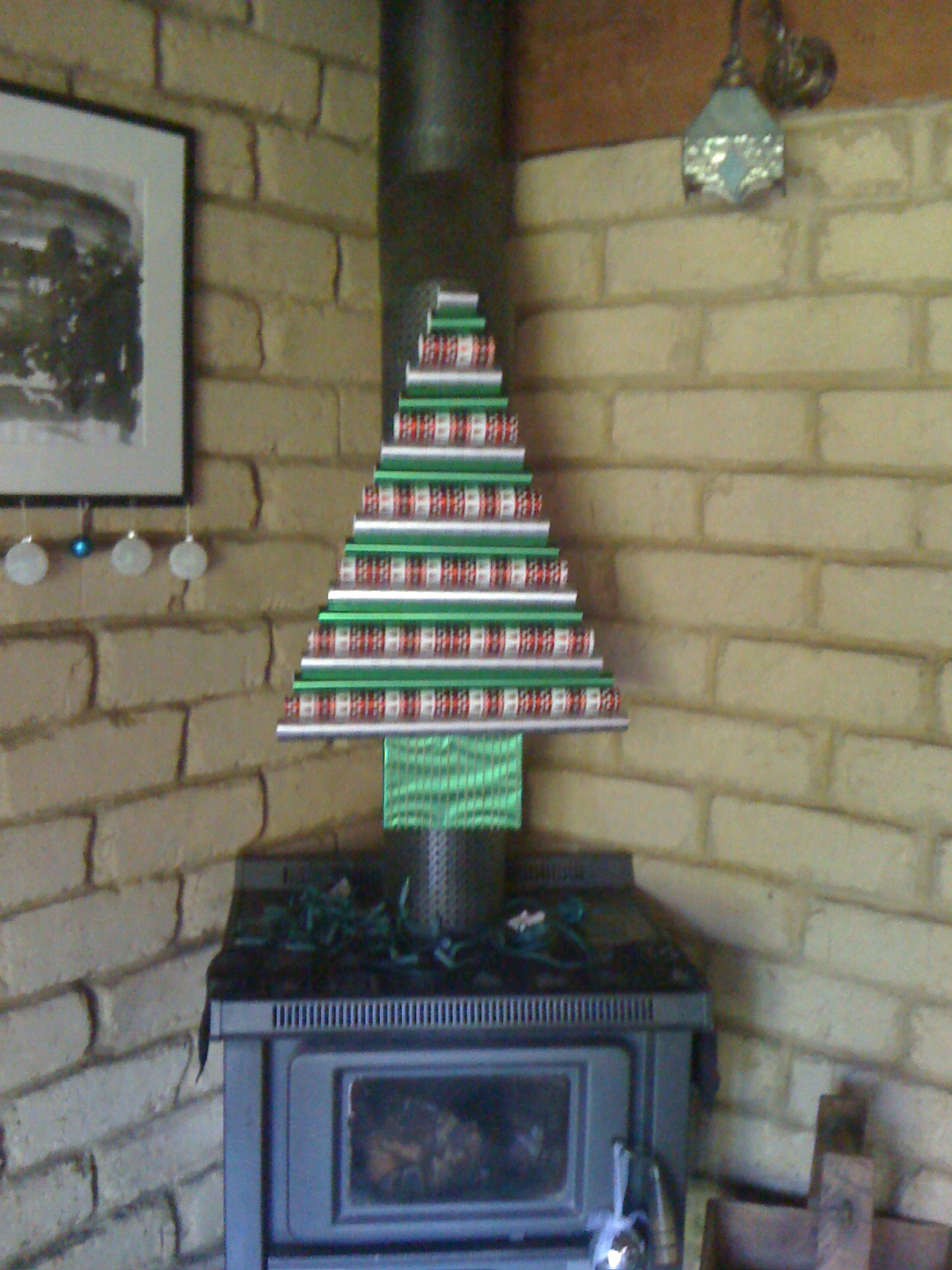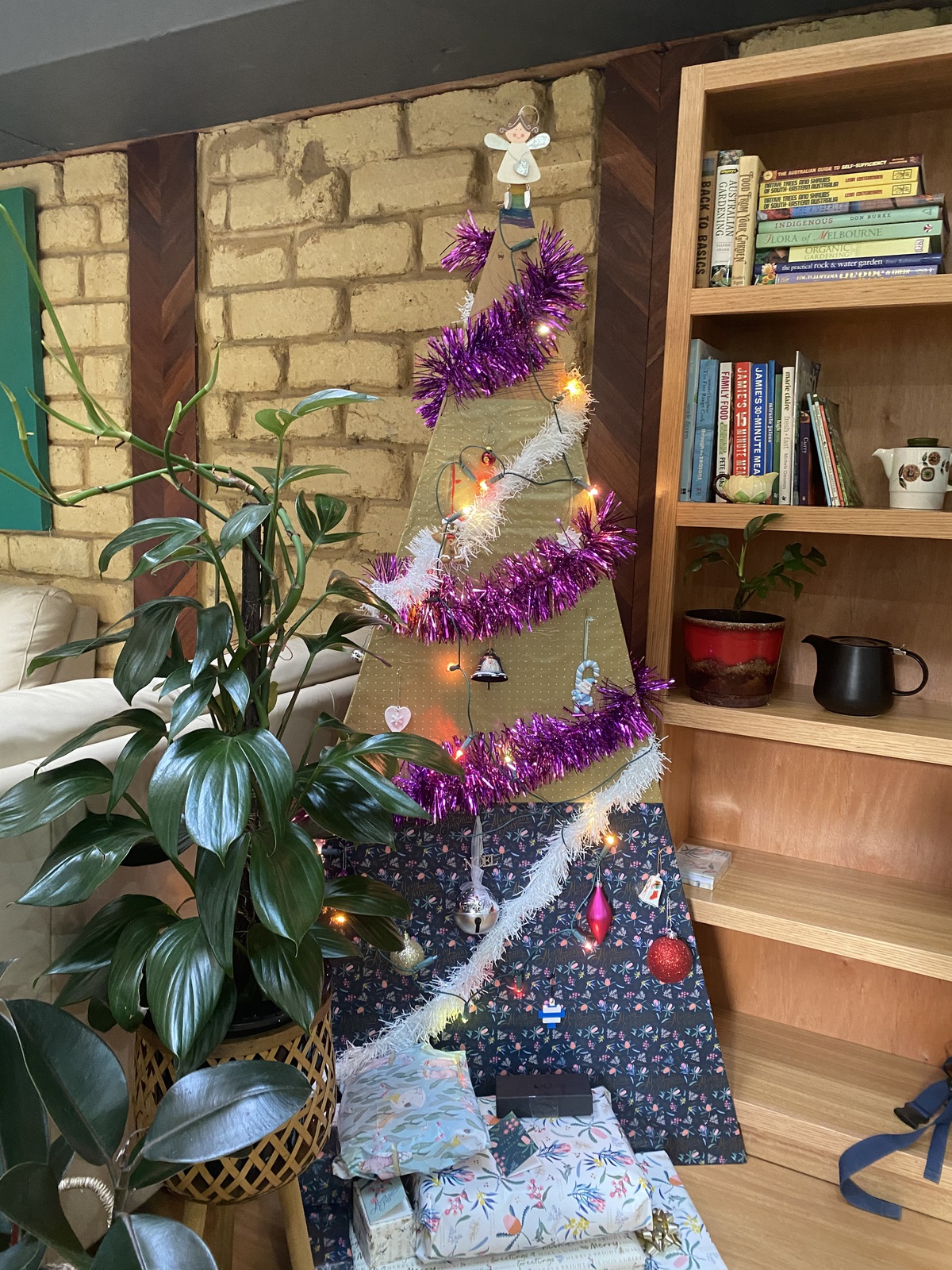Aligning to a Sustainable Christmas: Preserving the Planet While Celebrating

Understanding the environmental impact of traditional Christmas practices
Traditional Christmas practices can have a significant environmental impact. From the production of Christmas trees and decorations to the excessive amount of waste generated during the holiday season, our traditional celebrations can contribute to deforestation, excessive landfill, pollution, and climate change. By becoming mindful of the environmental consequences of these practices, we can make more informed choices and work towards a more sustainable Christmas.
The tree
Many trees are cut down each year to fulfil the demand for fresh Christmas trees, and while the favourite Christmas tree, the Pine Tree, is considered a weed in Australia and tends to be specifically farmed, we decided early on in our children's lives that the symbology of growing a tree, cutting down a tree for our own pleasure and then disposing of it a month later when we were done with it was not in line with the sustainable living values that we wanted to send to our kids.
And while people might think they’re doing the planet a favour by purchasing a tree that can be used over and over, a 2009 study by Canadian consultancy firm Ellipsos – which took into account the resources expended and greenhouse gas emissions in producing artificial trees, plus human health ramifications – concluded a fake tree would need to be used for more than 20 years to be more sustainable than a natural one.
By opting for alternatives, we can help reduce the environmental impact - and instil great traditions and values in the next generation too. In our home, we have had a few different Christmas trees over the years, including fruit trees that were later planted in the orchard, potted natives, recycled wrapping paper and hubby's favourite, this one he crafted with the kids from a cardboard box that arrived one year. Honestly, sometimes I do crave the big, beautiful American-style Christmas tree of my childhood, but this has become such a shared family tradition now that it is super fun coming up with new ideas and getting crafty together to execute them (some with much more success than others!)
 .
. 
The gift wrap
The bags of wrapping paper that get tossed in the bin after just one use can be confronting. I love the Japanese art of Furoshiki fabric wrapping as an alternative. Check out this video from Art Gallery Fabrics for three simple techniques, get yourself some gorgeous fabric and reuse year on year!

The gifts
Similarly, when selecting gifts, where possible I prioritise items that are eco-friendly and have a minimal carbon footprint. Considering products made from sustainable materials, such as organic cotton or bamboo, and supporting brands that prioritise ethical manufacturing practices can go a long way. Giving experiences, such as concert tickets spa vouchers, or homemade gifts that showcase your (or the kids!) creativity and thoughtfulness. Shop locally and support small business which is doing it so tough right now.
Importantly, I'm trying not to get swept up in the buzz of strategically placed sales and gifts for gifting sake. I like to really stop to think about people and give gifts that come from the heart and don't just add to the mountain of excess we are so used to these days. One of my favourite gifts of recent times is photo calendars and books for family members and friends. I tend to take lots of photos and just love sharing them with those in our lives and making use of them. Every year our grandparents get calendars with photos of the times we have caught up throughout the year. It's such a treasured gift.
Christmas consumerism seems to have gotten away from itself, this year I'm hearing so many parents who are feeling pressured with cost of living and the excessive expectations, consumption and waste associated with Christmas. From the massive amounts of gifts, the packaging of gifts to the excess food and discarded decorations, the holiday season generates a significant amount of waste, not to mention the anxiety that goes along with it.
The spectacle and the food
Let this be your permission slip to take the pressure off and simplify to a level that feels freeing and fun for you. Oh and if you are spending the majority of the day in the kitchen instead of being present with family, it's probably not a great sign, Christmas needs to be sustainable for you too.
In recent years, we have simplified, opting for more inclusive bring plate style Christmas meal or the more Aussie weather-suited, picnic-style lunches that don't involve one person slaving away to host but instead share the load and allow all to be present together.
I’ve worked hard to ease off the more is more mentality, the wow value of a smorgasbord of choices and settle more on quality locally sourced ingredients done in moderation.
Without “all the things” there is a lot less food waste and somehow this has correlated with a lot more ease too. Last year we chose to hire a shelter at a local reserve, and all bring a plate to share. It was so fun, and no women were stuck cleaning the kitchen for hours on end….. the togetherness was a little bit more, and people felt more comfortable without the “so much work” buzz in the air.
The benefits of adopting sustainable Christmas traditions
Adopting sustainable Christmas traditions brings numerous benefits for both the environment and ourselves. By reducing our ecological footprint during the holiday season, we can help preserve natural resources, reduce pollution, and mitigate climate change. This not only benefits the planet but also contributes to our own well-being.
Celebrating a sustainable Christmas allows us to align our values with our actions. It gives us an opportunity to show our commitment to protecting the environment and being responsible global citizens. By making conscious choices, such as supporting local artisans and businesses, choosing eco-friendly decorations and gifts, and reducing waste, we can create a more meaningful and fulfilling holiday experience.
Moreover, adopting sustainable Christmas traditions can inspire others to do the same. By questioning our collective traditions rather than just blindly walking into them we can start to shift our impact and stand in the values of the new ways we wish to move forward with, having a bit of fun along the way. Together, we can create a collective impact and work towards a greener and more sustainable future.
How to have a sustainable Christmas: more practical tips and ideas
Having a sustainable Christmas can be easier than you might think.
Eco-celebration and sustainable events expert Tai Ryan from Sustainable Occasion has whipped up a FREE guide to sprinkle some sustainability magic on your festivities!
Grab your copy here https://www.thesustainableoccasion.com/product-page/the-sustainable-christmas-guide
Remember, small actions can make a big difference. It's totally ok to indulge and participate in the traditions you love, and questioning why we do certain traditions and if they are still in line with our values can also be a powerful experience that will help to shift the blind consumerism that can be so prevalent in a world of advertising and excess.
The challenges we face as a collective human race when it comes to the sustainability of this planet are significant and, at times, overwhelming, but the steps to aligning our practices with our values when steeped in deep traditions of events like Christmas can simply be a matter of breaking old habits and social norms and paving the way for the new ones to take over.



